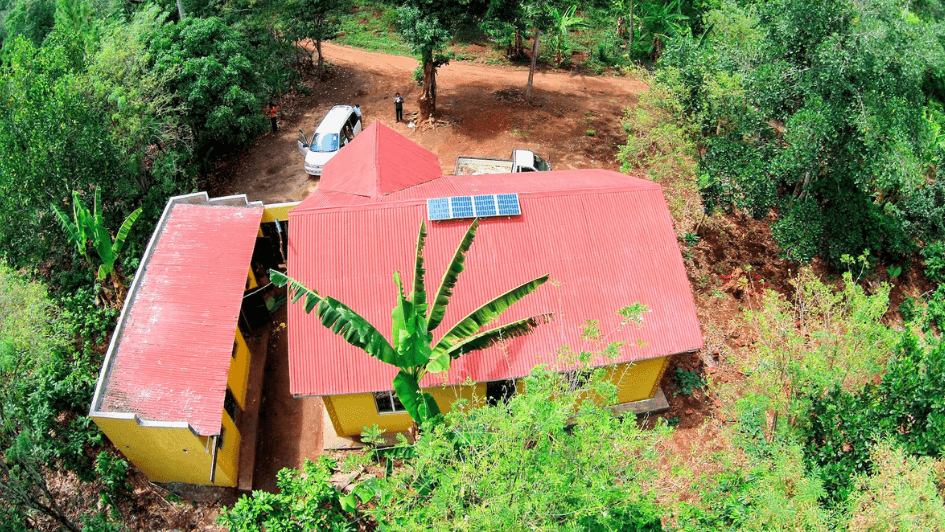In a country where 56 percent of the population still has little or no access to electricity, achieving universal access to electricity in the next couple of years is an ambitious goal. This is, however, exactly what the Ethiopian government hopes to achieve by 2025 through a combination of grid and off-grid based solutions. To ensure this aspiration becomes reality, the country must increase financing for off-grid renewable energy solutions and find ways to boost knowledge and understanding of the sector.
Ethiopia’s energy ambitions were originally set out in its 2017 National Electrification Plan (NEP) and restated in its 2019 NEP2.0. The proposal aims that by 2025, 65 percent of the country’s electricity provision will be provided through the grid and 35 percent with off-grid solutions, such as standalone solar technologies and mini-grids. Financing for the off-grid sector and providing electricity in this way for 9.2 million households is estimated at US$1.76B.
Progress is being made, but much more needs to happen if the government is to meet its offgrid electrification plans and move the country up the energy charts — today Ethiopia has the third largest energy access deficit in sub-Saharan Africa.
Increasing offgrid electricity supplies is vital for the country’s economy. Agriculture accounts for 33 percent of Ethiopia’s GDP, 76 percent of its exports and employs around 66 percent of the country’s workforce. Greater access to solar-powered electricity would allow farmers to increase irrigation and help develop productivity and food security, as set down in the Powering Agriculture in Ethiopia project agreed between the country’s government and Power for All in 2022.
“Ethiopia and its development partners have invested heavily in this sector and have made steady advances in off-grid access,” says a report by Addis Ababa-based Energy Market Accelerator/Precise Consult, but “more sustainable finance is needed”. The report highlights the main problems it believes are slowing down an uptick in financing for offgrid renewables in Ethiopia.
One significant issue is the long timeframes involved in financing and getting products to market. “The time to convert inventory to cash is extremely long — in some cases reaching more than three years”, says the report. The reasons behind this slow timetable are myriad and complicated. The report highlights the fact Ethiopia’s offgrid sector is fully dependent on imports and that consumers needing to be connected to offgrid electricity solutions are in rural areas with poor transport and infrastructure.
Likewise, confidence in the sector is low given it is still emerging. Business experience and financial literacy in the offgrid sector are “relatively low” and demand remains “variable and uncertain,” says the report.
“Increased commercial lending” will be necessary to build out standalone solar solutions in the next couple of years as finance available from the Development Bank of Ethiopia is “oversubscribed and insufficient”, continues the report, but commercial banks are reluctant to get involved. They perceive the sector to be high-risk and require “high coverage ratios” and “strong requirements for fixed collateral” which “limits access for emerging businesses with less assets, particularly women-owned companies,” says the report.
Tesfaye Hailu, Ethiopia director at Power for All, sees an important role for the World Bank in helping to derisk the sector. “The problem in Ethiopia is knowledge and finance,” he says. Banks, importers and end users are not confident about the reliability of the technology, the size of the market and the specific products required, he explains, meaning the private sector can’t access the finance it needs to import products. When money from the World Bank is channelled in, as a form of credit guarantee and or forex for loan, it derisks the sector and creates confidence, he says: “This attracts the market influencers who have the leverage to activate and possibly accelerate the PUE [productive uses of electricity] market.”
Energy Market Accelerator/Precise Consult makes it clear “there are no ‘silver bullets’” to solving Ethiopia’s challenges. Instead, the report suggests various options to boost confidence in the offgrid sector and increase financing. A trade organisation or a centre of excellence could help the different parts of the sector work more closely together, suggests the report, which also invokes the possibility of alternative financing models, such as pay-as-you-go (PayGo) solutions. Other countries have “successfully scaled PayGo through solar as a service”, where providers shift from selling offgrid products to selling electricity services, it says.
Other solutions could include the creation of a “model bank” to allow Ethiopia to learn by doing and, rather than importing solutions directly from other countries, have the space to adapt them for the Ethiopian market. Novel sources of funding such as the voluntary carbon market could also be explored, suggests the report.
Philippa Nuttall is a freelance journalist and writer focused on climate change, the clean energy transition and environmental issues. She was previously Environment and Sustainability Editor at the New Statesman.
